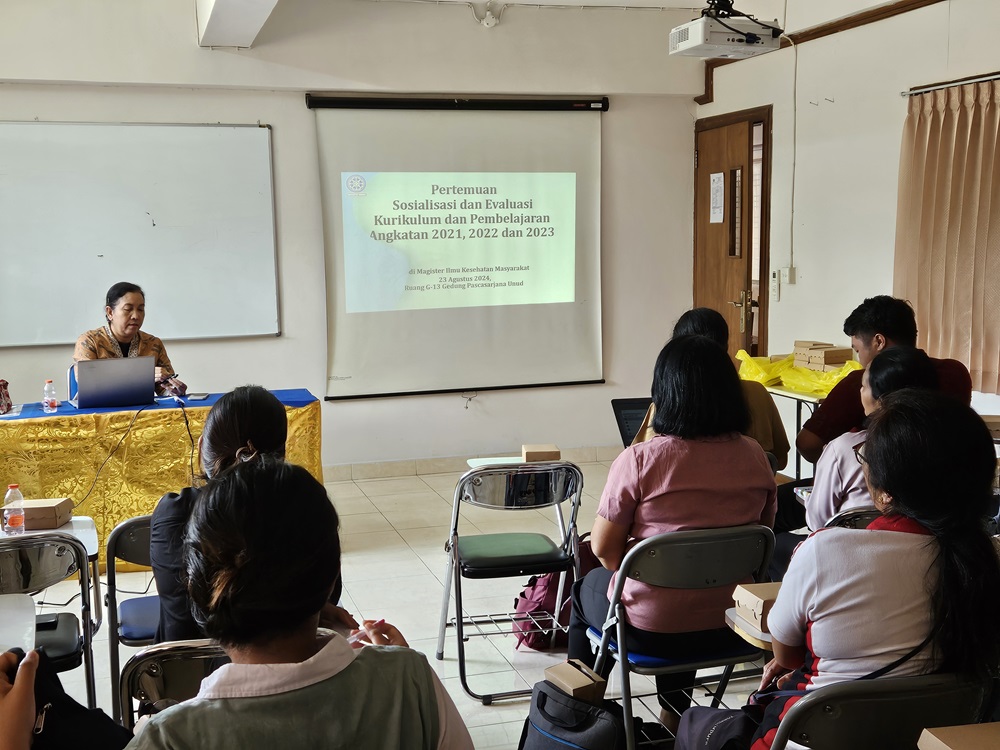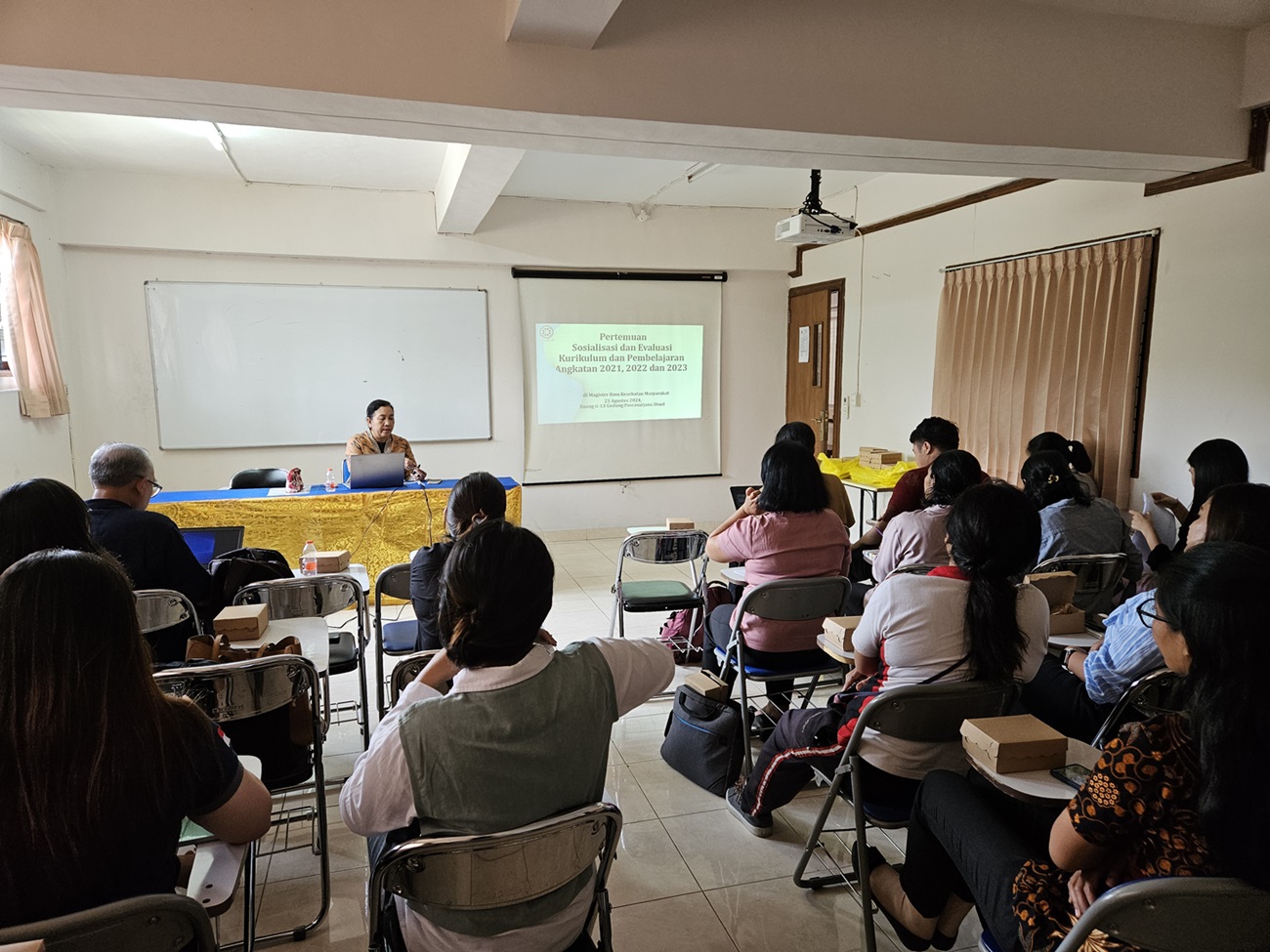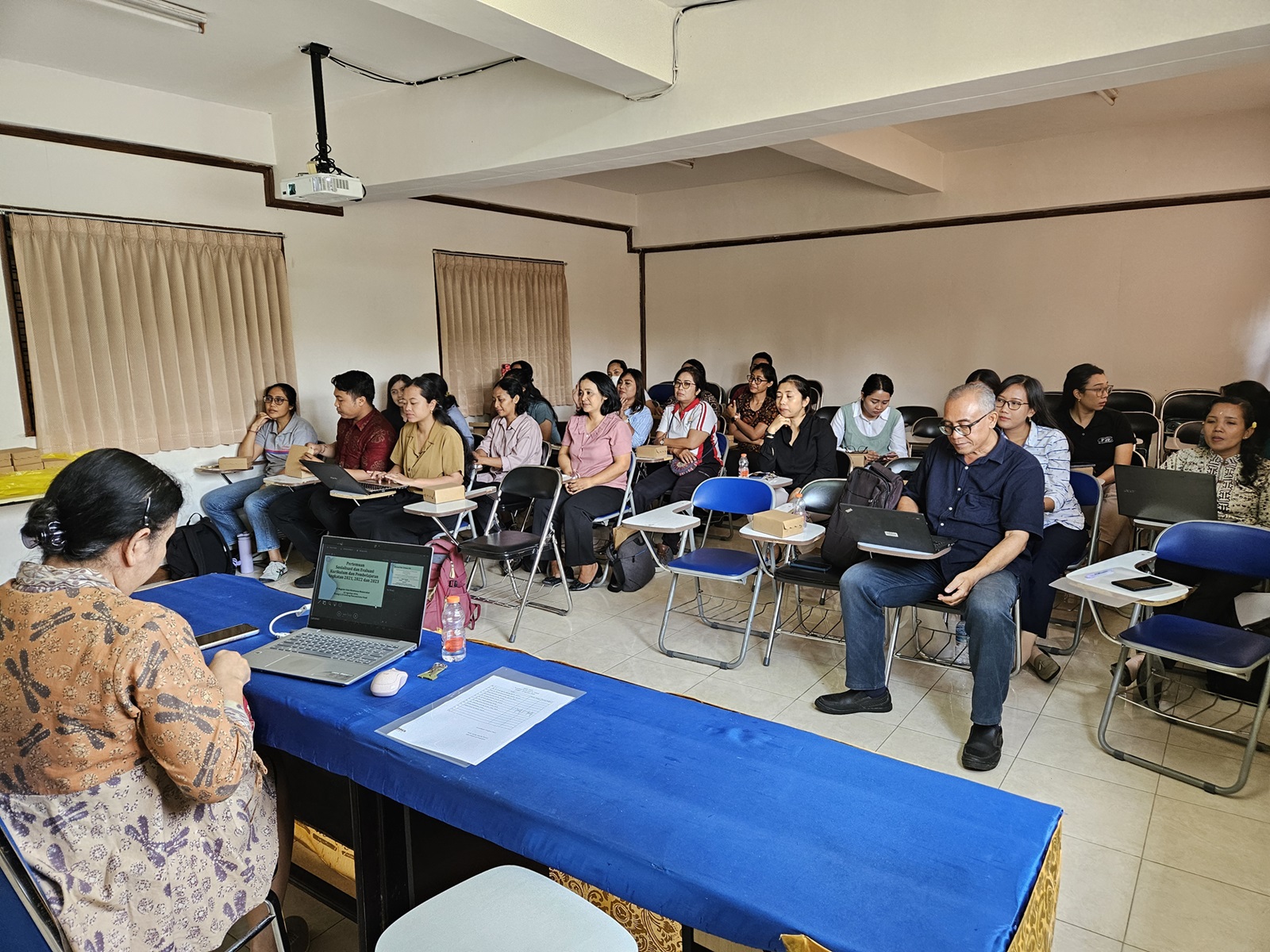Preparation for the New Curriculum for the 2021, 2022, and 2023 Batches
Prior to the implementation of the new curriculum based on the Ministry of Education's Regulation No. 53, 2023, the Master of Public Health Program at Udayana University conducted several meetings with students from each batch to socialize the changes, both in-person and online.
The first meeting, held on August 22, 2024, was conducted offline for students from the 2021 and 2022 batches. During this meeting, the Head of the Master’s Program explained strategies for adjusting the credit requirements from 46 to 54 credits in the remaining semesters. Currently, these students are in their 5th and 7th semesters, meaning they have limited time to add credits while also working on their theses. The strategy for these students included adding 3 credits for an internship at their workplace. They are required to evaluate a health program at their workplace using an evaluation model. Another requirement is for them to present their thesis at a seminar or conference, either as an oral or poster presentation, or publish it in a national journal. These additional requirements will enable the students to qualify for their Master's degree and obtain their National Certificate Number upon graduation.
Meanwhile, the students of the 2023 batch, who currently have 44 credits, need to adjust to a minimum of 54 credits. These students, currently in their third semester, have only this semester to add the necessary credits. The initial strategy involved adding 3 credits for an internship and 2 credits for national publications, similar to the 2021-2022 batches. However, many students aim to graduate within the third semester, which is restricted by the maximum of 24 credits per semester. Therefore, students in the KIA and MPK concentrations have to adopt a "learning history" model, which involves completing tasks related to the use of technology in health services (2 credits), which can be added to their second-semester score. Students in the FETP concentration have already earned credits for outbreak investigation (3 credits in the second semester and 1 credit in the third semester). This model was explained in an online meeting held on August 29, 2024.
As the new semester begins, an additional online session was held on September 9, 2024, to clarify the tasks that students need to complete by the end of September 2024.
The curriculum changes present challenges for the Master’s Program, as it also affects students who are under the previous curriculum. The reason for this strategy stems from historical issues with data recording at the university and validation by the Ministry, particularly after the centralized system was introduced years ago. However, we believe that the strategy implemented by the Master’s Program will enhance the competence of our graduates in their respective fields.






MEDICAL FACULTY